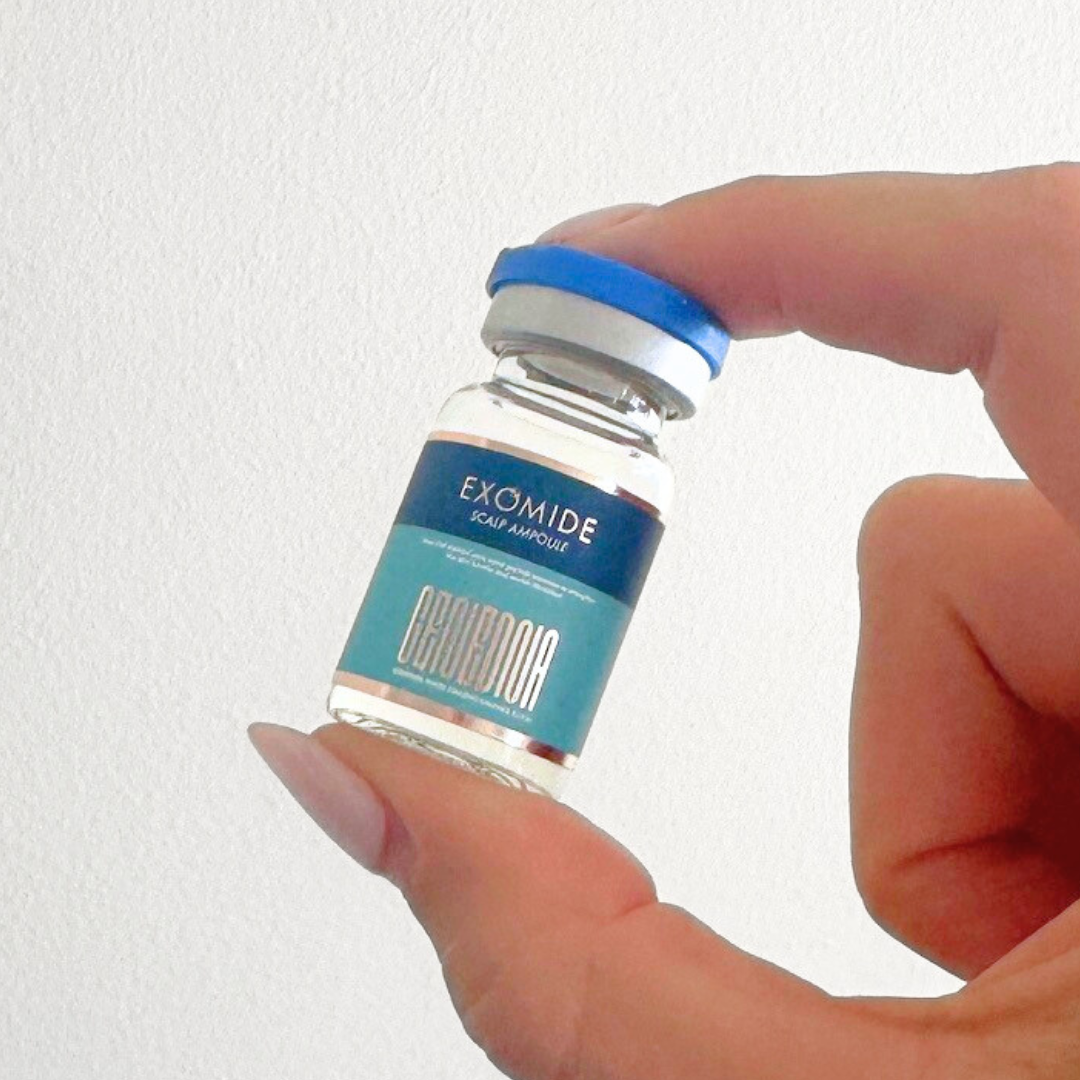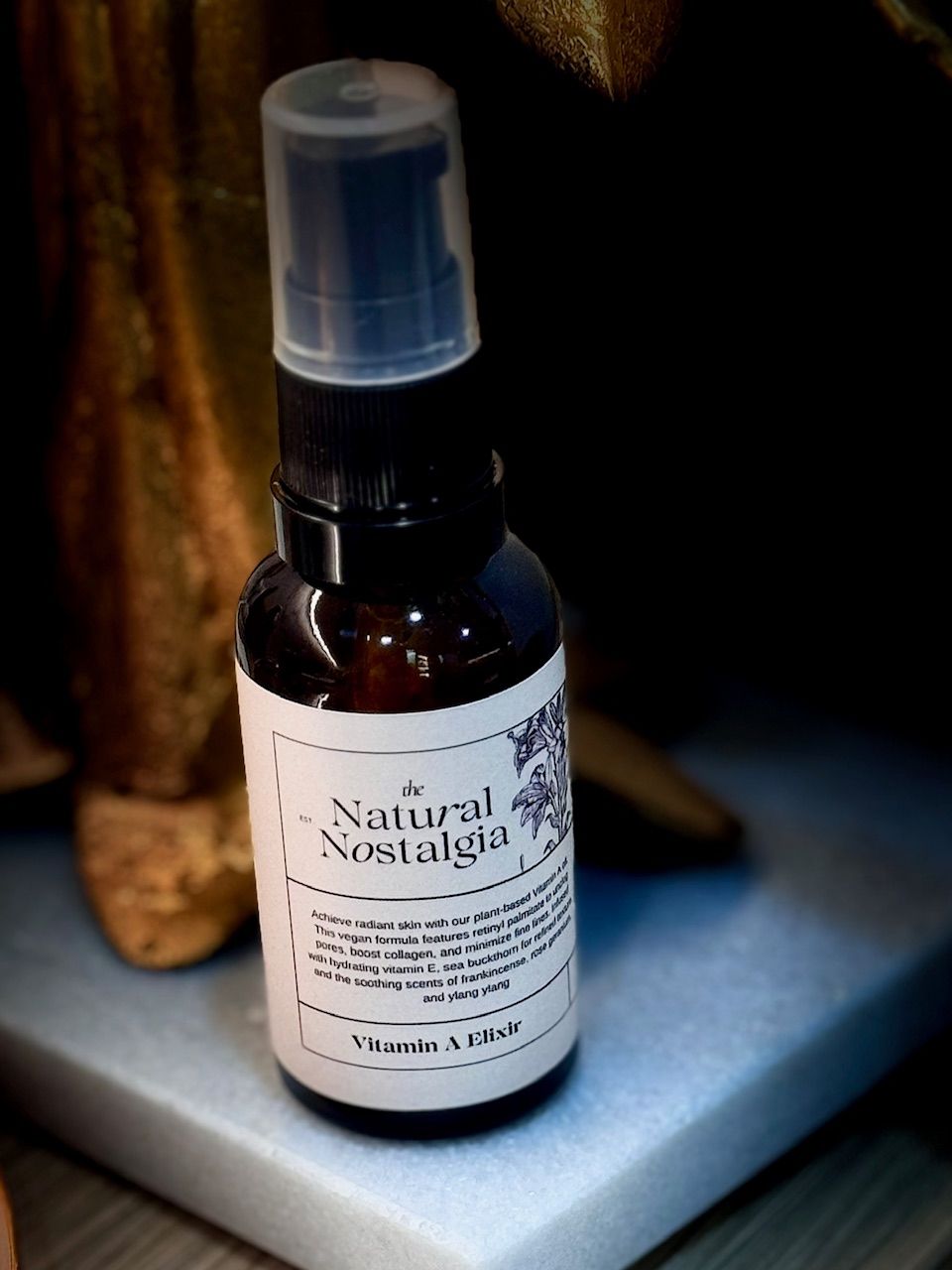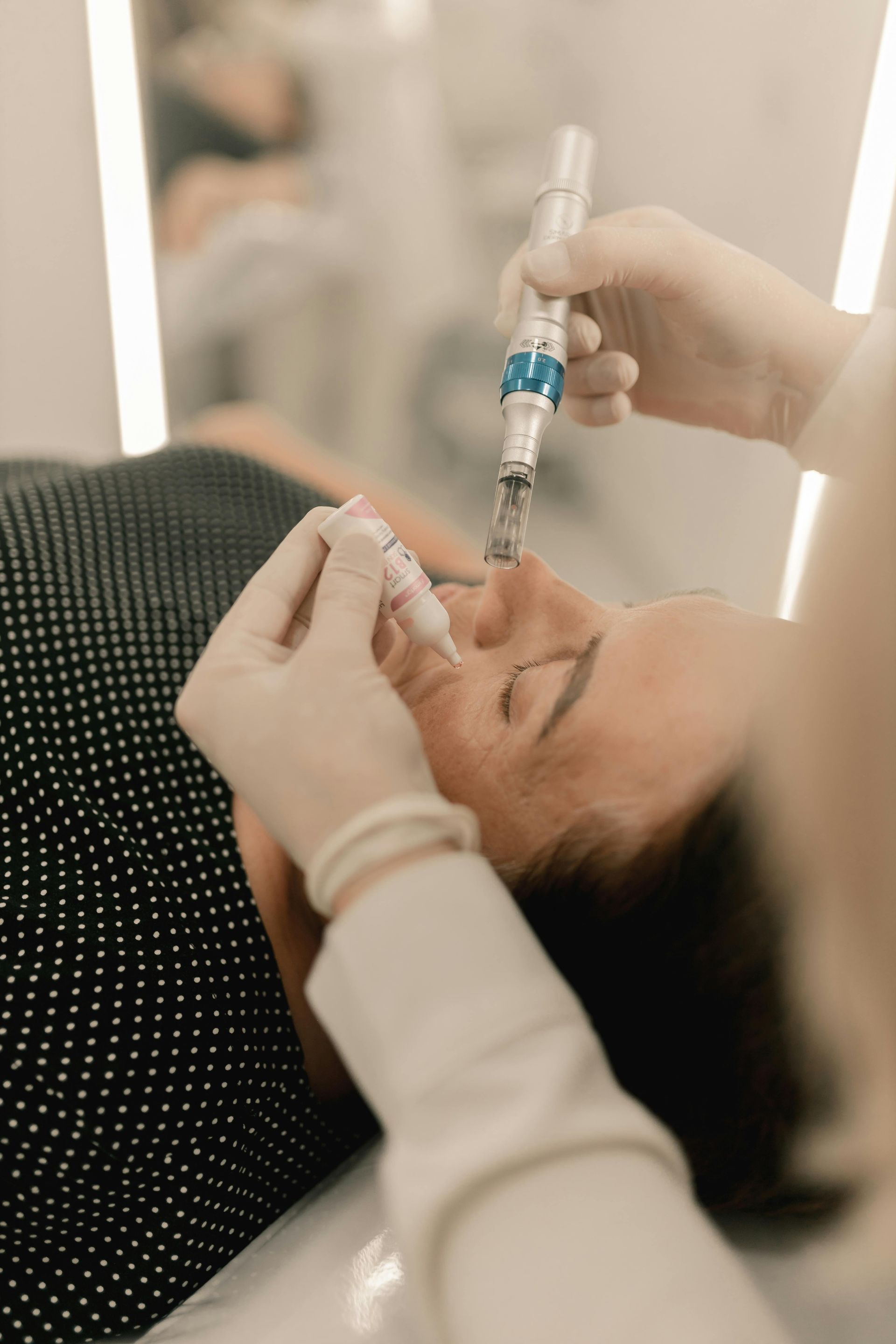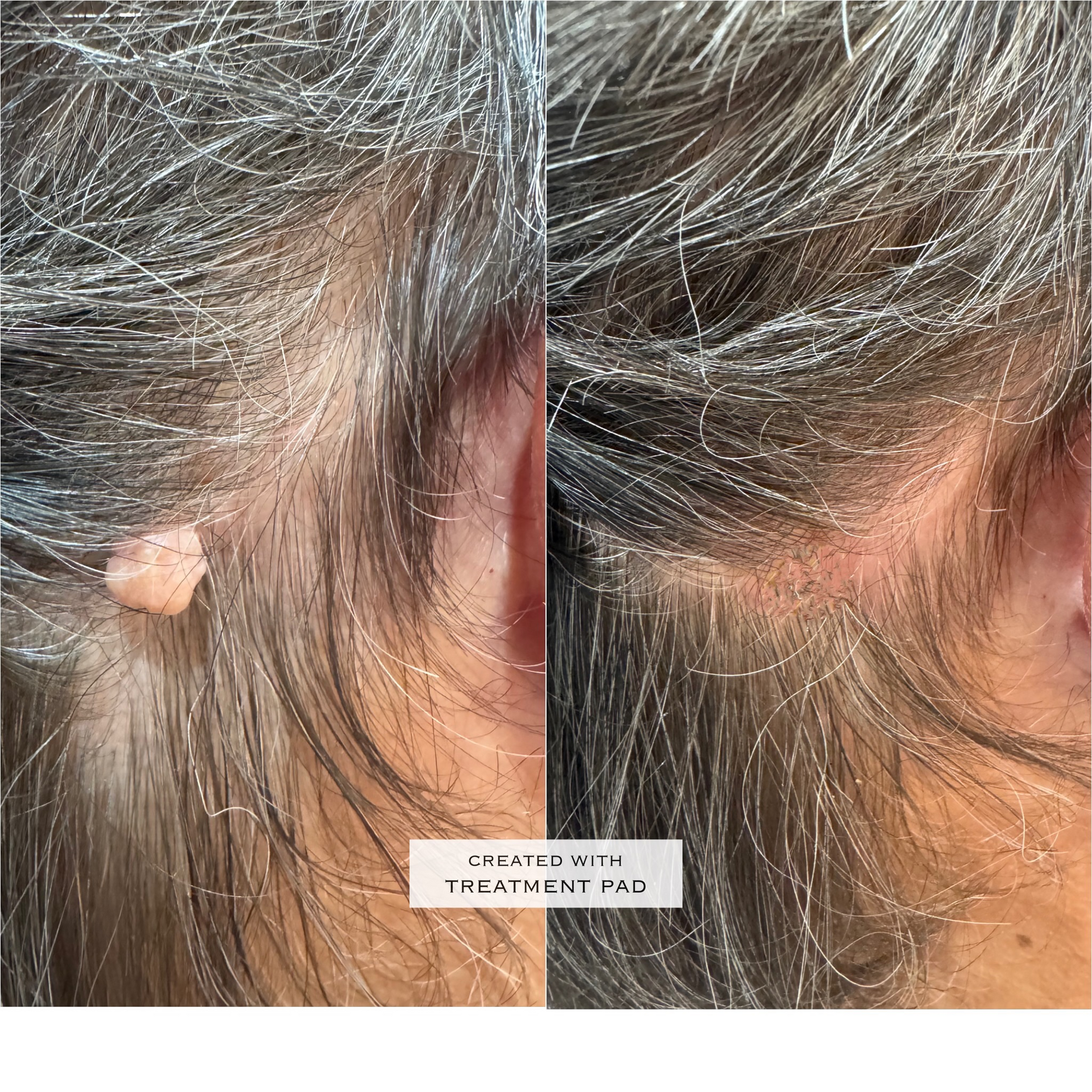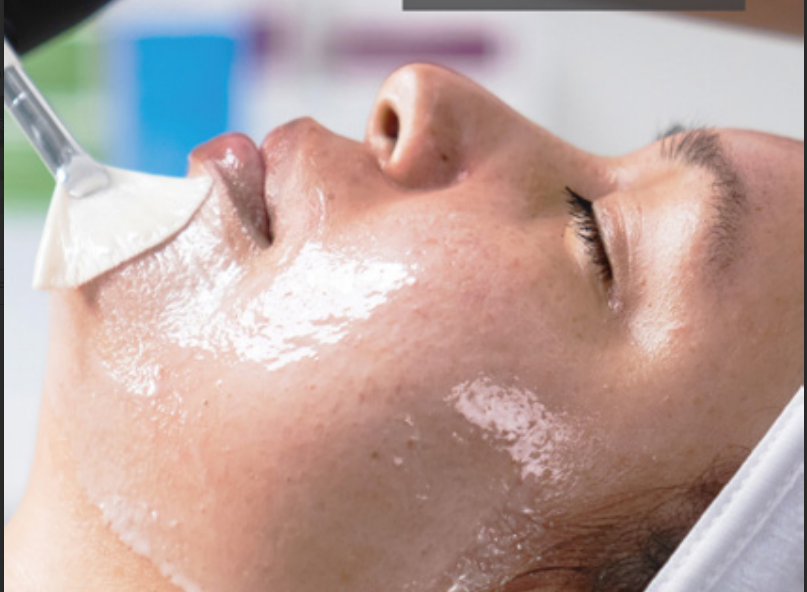How Chemical Peels Help with Pigmentation

The Power of Peels: How Chemical Peels Help with Pigmentation
Have you ever looked in the mirror and noticed uneven skin tone, dark spots, or patches of hyperpigmentation on your face? If so, you're not alone. Pigmentation issues, such as melasma, sunspots, and post-inflammatory hyperpigmentation, can be frustrating for many people. Fortunately, a powerful skincare treatment can help address these concerns: chemical peels. This blog will explore how chemical peels work, why they effectively treat pigmentation issues, and the importance of sunscreen and proper skincare in maintaining results.
Understanding Pigmentation
Before delving into the benefits of chemical peels, it's essential to understand what causes pigmentation problems in the first place. Pigmentation issues are primarily the result of an overproduction of melanin, the pigment responsible for the colour of our skin, hair, and eyes. This excess melanin can be triggered by various factors, including:
UV Exposure: Sun damage is a leading cause of pigmentation problems. Prolonged sun exposure can lead to the development of sunspots and freckles.
Hormonal Changes: Conditions such as melasma, often called the "mask of pregnancy," are triggered by hormonal fluctuations during pregnancy, menopause, or while taking birth control pills.
Inflammation: Post-inflammatory hyperpigmentation occurs due to skin inflammation or injury, such as acne, cuts, or burns.
How Chemical Peels Help
Chemical peels are cosmetic treatments that involve the application of a chemical solution to the skin's surface. This solution exfoliates the top layers of skin, encouraging the growth of new, healthier skin cells. Here's how chemical peels can help with pigmentation:
Exfoliation: Chemical peels work by removing the damaged outer layers of skin. This exfoliation process helps to shed pigmented, uneven skin cells, revealing fresher, more even-toned skin beneath.
Stimulating Collagen Production: Some chemical peels, particularly medium and deep peels, penetrate deeper into the skin, stimulating collagen production. Collagen is essential for maintaining skin's firmness and elasticity, and its increased production can help improve overall skin texture and reduce the appearance of pigmentation.
Targeted Treatment: Chemical peels can be customised to address specific pigmentation concerns. For example, a trained healthcare professional can choose the appropriate type and strength of peel based on the severity of the pigmentation issue.
Important factors to consider.
When undergoing treatments, it is crucial to remain consistent with your appointments and follow the aftercare instructions to be able to see visible results.
The Role of Sunscreen
After undergoing a chemical peel, protecting your skin from further damage, especially from UV radiation is crucial. UV exposure is a significant factor in developing pigmentation issues, and failing to protect your skin can undo the benefits of a chemical peel. Here's why sunscreen is essential:
UV Protection: Sunscreen with broad-spectrum SPF (Sun Protection Factor) shields your skin from harmful UVA and UVB rays. These rays can exacerbate pigmentation problems and cause premature aging.
Preventing New Pigmentation: Sunscreen helps prevent the formation of new pigmentation issues. It is especially vital for those who have undergone chemical peels, as the new, delicate skin is more susceptible to UV damage.
Preserving Results: Using sunscreen regularly can prolong the results of your chemical peel, allowing your skin to remain smoother and more evenly toned.
The Importance of Proper Skincare
In addition to sunscreen, a good skincare routine is essential for maintaining the results of a chemical peel and preventing further pigmentation issues. Here are some key skincare practices to consider:
Gentle Cleansing: Use a mild, non-abrasive cleanser to cleanse your face. Harsh cleansers can irritate the skin and exacerbate pigmentation problems.
Hydration: Keep your skin hydrated with a suitable moisturizer. Well-hydrated skin tends to heal and recover more effectively.
Topical Treatments: Depending on your skin type and pigmentation concerns, your trained healthcare professional may recommend topical treatments, such as vitamin C serums or prescription-strength products, to further address pigmentation.
Regular Exfoliation: Use gentle exfoliants to help maintain smooth skin and prevent the buildup of dead skin cells that can contribute to pigmentation problems.
Chemical peels offer an effective solution for those dealing with pigmentation problems. By exfoliating the skin, stimulating collagen production, and customizing treatments to target specific concerns, chemical peels can help you achieve a more even, radiant complexion. However, it's essential to consult a skincare professional to determine the most suitable peel for your needs and ensure the procedure is performed safely. Additionally, remember to use sunscreen daily and follow a proper skincare routine to maintain and enhance the results of your chemical peel. With the right care, you can regain confidence in your skin and say goodbye to pigmentation worries.
Talk to us if you would like to receive more information on chemical peels
Here are some useful websites with valuable and relevant information:
- The Australasian College of Dermatologists (ACD): The ACD is the professional body for dermatologists in Australia. They provide valuable resources on various dermatological topics, including information on chemical peels for pigmentation issues. (Website: https://www.dermcoll.edu.au/)
- Skin Cancer Foundation Australia: As Australia has a high incidence of skin cancer due to its harsh sun, this organization offers insights into the importance of sunscreen and sun protection in preventing pigmentation issues. (Website: https://www.skincancerfoundation.org.au/)
- Australian Cancer Council: The Cancer Council provides resources and recommendations for sun protection in Australia. They emphasize the role of sunscreen in preventing skin damage and pigmentation. (Website: https://www.cancer.org.au/cancer-information/causes-and-prevention/sun-safety/sunscreen-faqs.html)
References:
Mayo Clinic. (2021). Chemical peels. https://www.mayoclinic.org/tests-procedures/chemical-peel/about/pac-20393473
American Academy of Dermatology. (n.d.). Chemical peels. https://www.aad.org/cosmetic/dermatologic-procedures/chemical-peels
American Academy of Dermatology. (2021). Melasma: Diagnosis and treatment. https://www.aad.org/public/diseases/a-z/melasma-treatment
Skin Cancer Foundation. (2021). Sunscreen. https://www.skincancer.org/skin-cancer-prevention/sun-protection/sunscreen/
Skin Cancer Foundation. (2021). Sunscreen FAQs. https://www.skincancer.org/skin-cancer-prevention/sun-protection/sunscreen/sunscreens-faq/
American Academy of Dermatology. (2021). Hyperpigmentation: Overview. https://www.aad.org/public/diseases/a-z/hyperpigmentation
American Academy of Dermatology. (2021). Post-inflammatory hyperpigmentation: Overview. https://www.aad.org/public/diseases/a-z/post-inflammatory-hyperpigmentation.
Read our blogs
